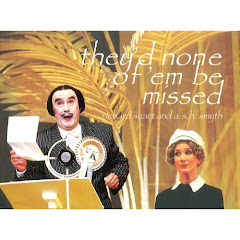How Equal Temperament Ruined Harmony (and Why You Should Care)
Ross W. Duffin
W.W. Norton, £9.99, p196
ISBN: 978-0393334203
When William Gardiner lamented in 1832 that ‘the Deity seems to have left music in an unfinished state’ he was referring to a seeming paradox of tuning: if you start from C and keep adding fifths, twelve steps later you’re back at C… but out of tune.
Thank heavens, then, for the stroke of mathematical common sense that is equal temperament (ET), the elegantly efficient twelve-note, equally-spaced octave, which facilitates roaming modulation without endless re-tuning.
Surely?
Not in Ross Duffin’s opinion. For Duffin, ET is nothing less than the bastard offspring of our musical ignorance and laziness, and is responsible, with its over-wide thirds and too-too-sharp leading notes, for hopelessly warping harmony in both its vertical and linear senses.
In this long essay Duffin complains that few musicians have ever actually experienced unequally-tempered music, and argues that we should once again embrace the many alternative tuning systems (Mozart heard ‘richer, more dramatic chords’, etc.). He narrates the struggles performers have maintained, even recently, to avoid ET. He explains why so-called enharmonics really cannot be the same note (just as A- and B+ are not, alas, the same grade), and why even voice and strings, themselves not shackled to ET, are constrained when accompanied by instruments which are.
Notwithstanding his distracting and oddly patronising info-boxes (which make the eye skip constantly, offer frequently irrelevant detail, and imply a totally implausible non-academic readership), the prose is as free-flowing as could reasonably be expected in a tract on acoustic physics, and the charts, scores, cartoons and other illustrations are a great boon when the going gets tough.
The big problem is Duffin’s basic street-preacher hysteria. Like all fundamentalists, of course, Duffin claims he’s on the side of reason (while melodramatically comparing ET to lethal sonic weaponry); but, rather like the geek-advocates of vinyl records, he fails to convince that the musical characteristics of alternative temperaments are actually preferable, rather than simply unavoidable.
In his academic isolation, he waxes wroth about the ‘excruciating discrepancy’ of the rigged ET. (An error, for the record, of a quarter of a semitone across the entire keyboard: a slip of 0.014%. You could get trial drugs certified with worse odds.) Practically speaking, he ultimately wants every piece of music played in the composer’s preferred temperament – a lovely idea, so long as you’re not running a school orchestra.
At best, Duffin’s argument is theoretically fascinating, but essentially irrelevant; at worst, it reads like an argument in defence of oral poetry which ends up clamouring for the abolition of the printed word. So we ask the age-old question: isn’t progress called progress for a reason? Of all the various and considered attempts to ‘balance euphony with utility’ it was ET that won out. The democracy of tuning systems, equal temperament is flawed as a direct result of its inherent equality, comprehensible to all (in principle, if not in detail), and the least bad – and most practicable – of the available options. It is also, to borrow a phrase, the end of harmonic history.
Tuesday, 28 October 2008
Musicohysteria!!! (now with flattened sevenths)
More from the future archives of Music Teacher:
Subscribe to:
Post Comments (Atom)







No comments:
Post a Comment